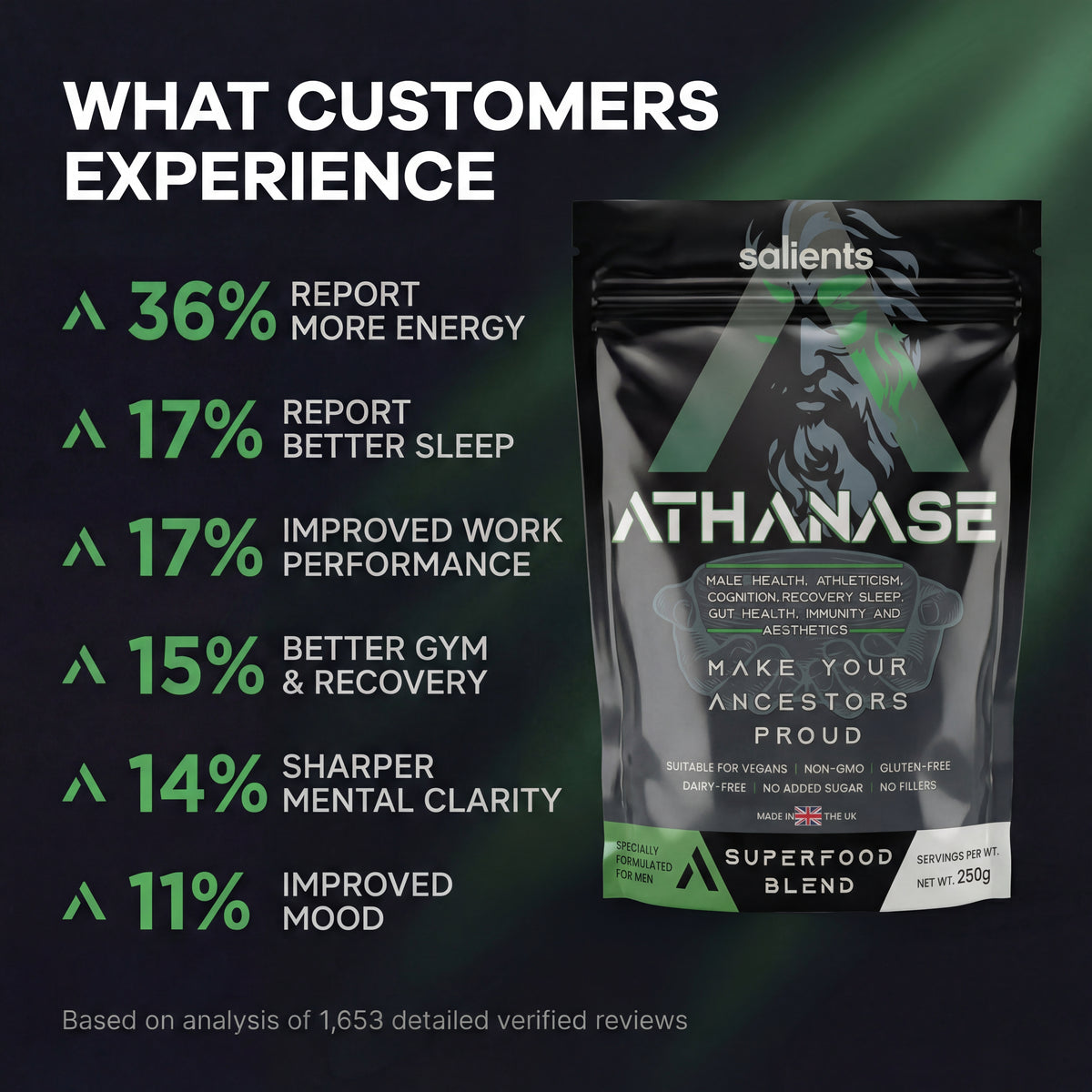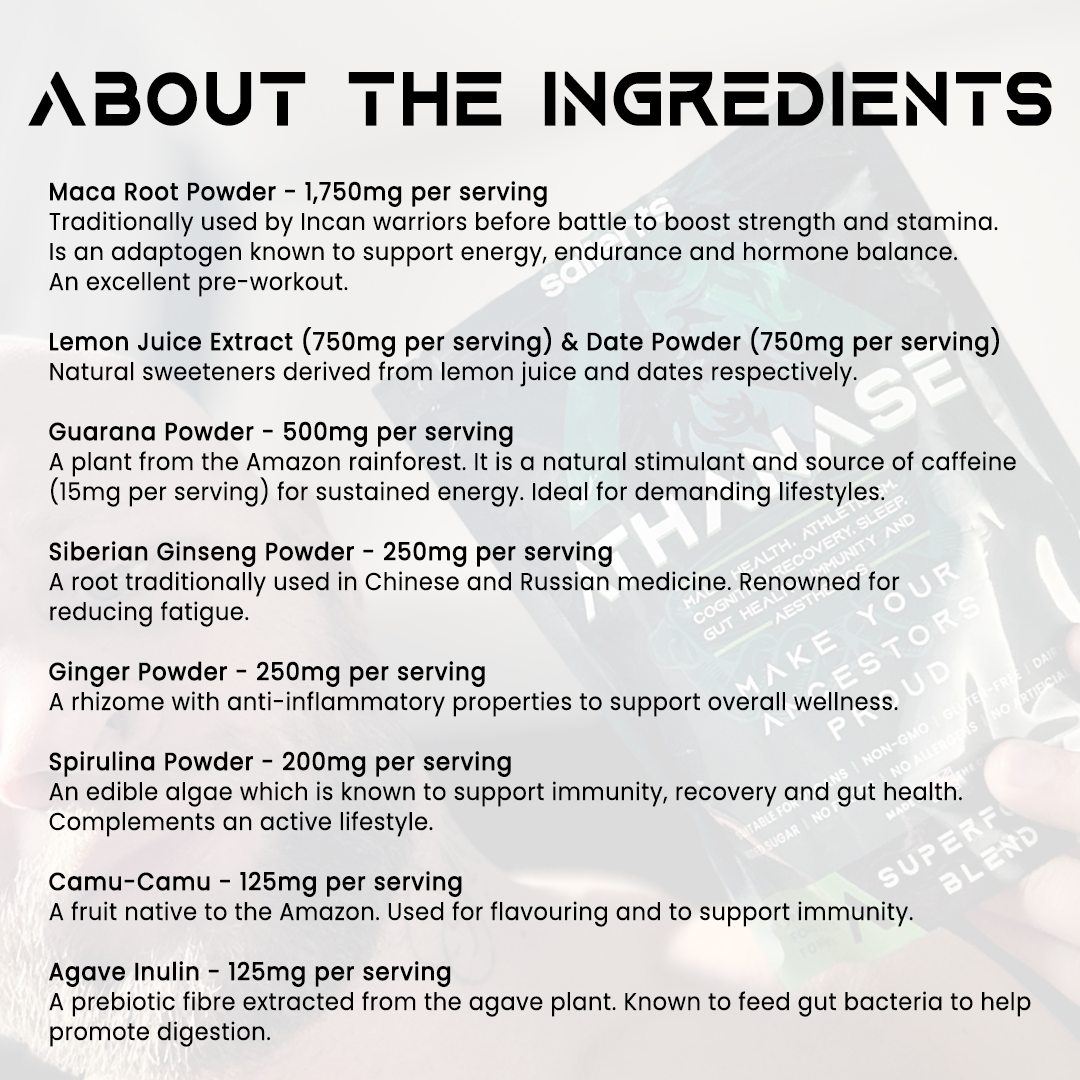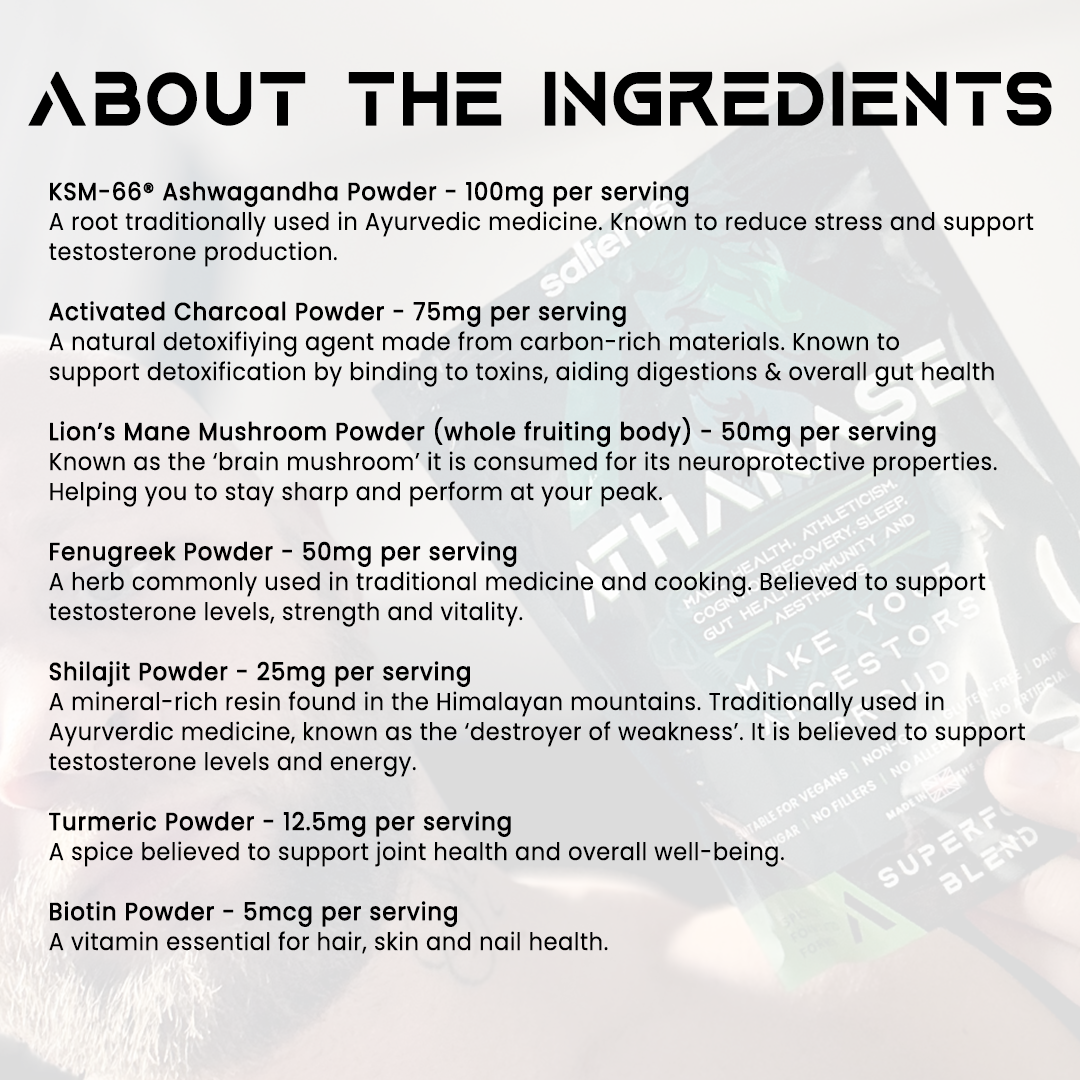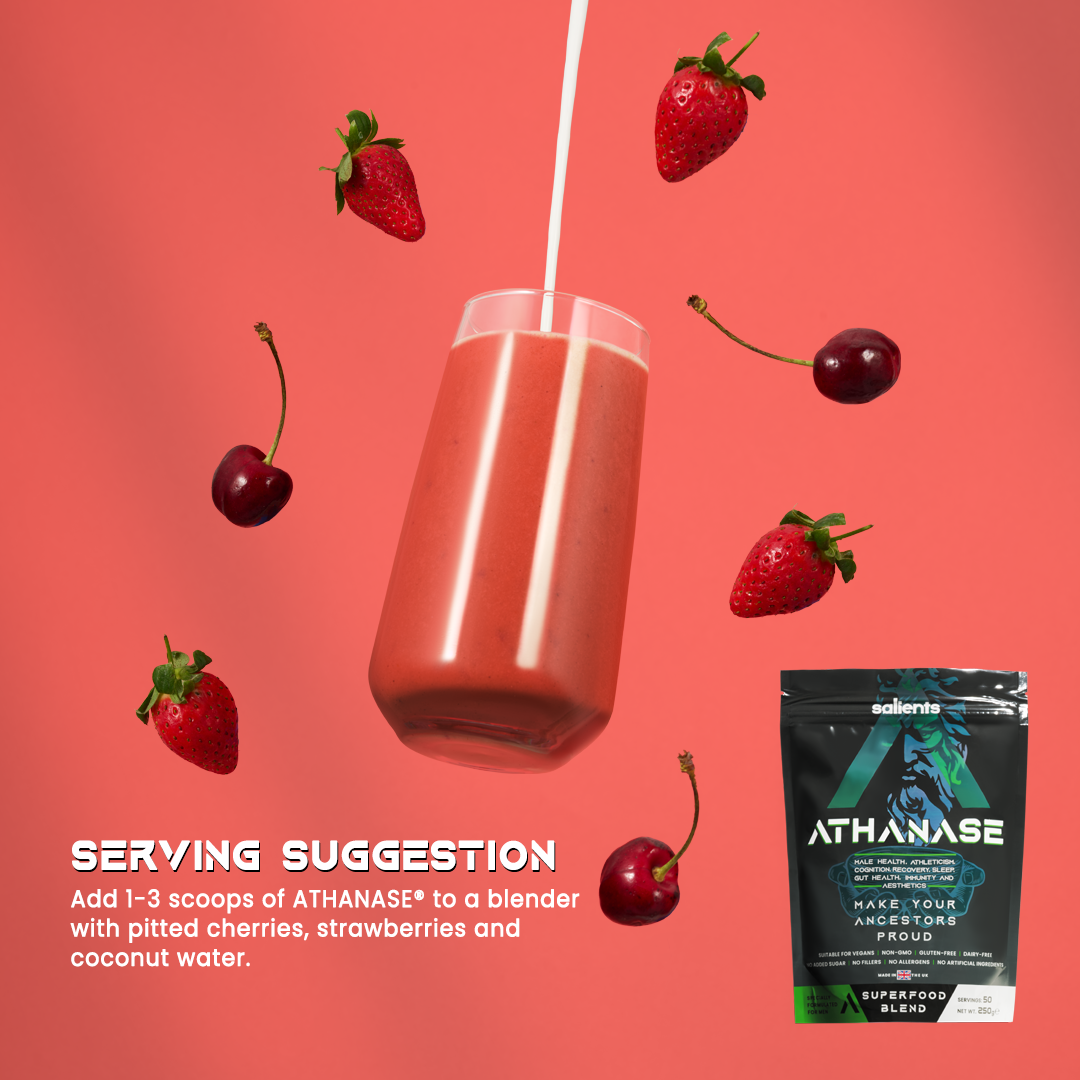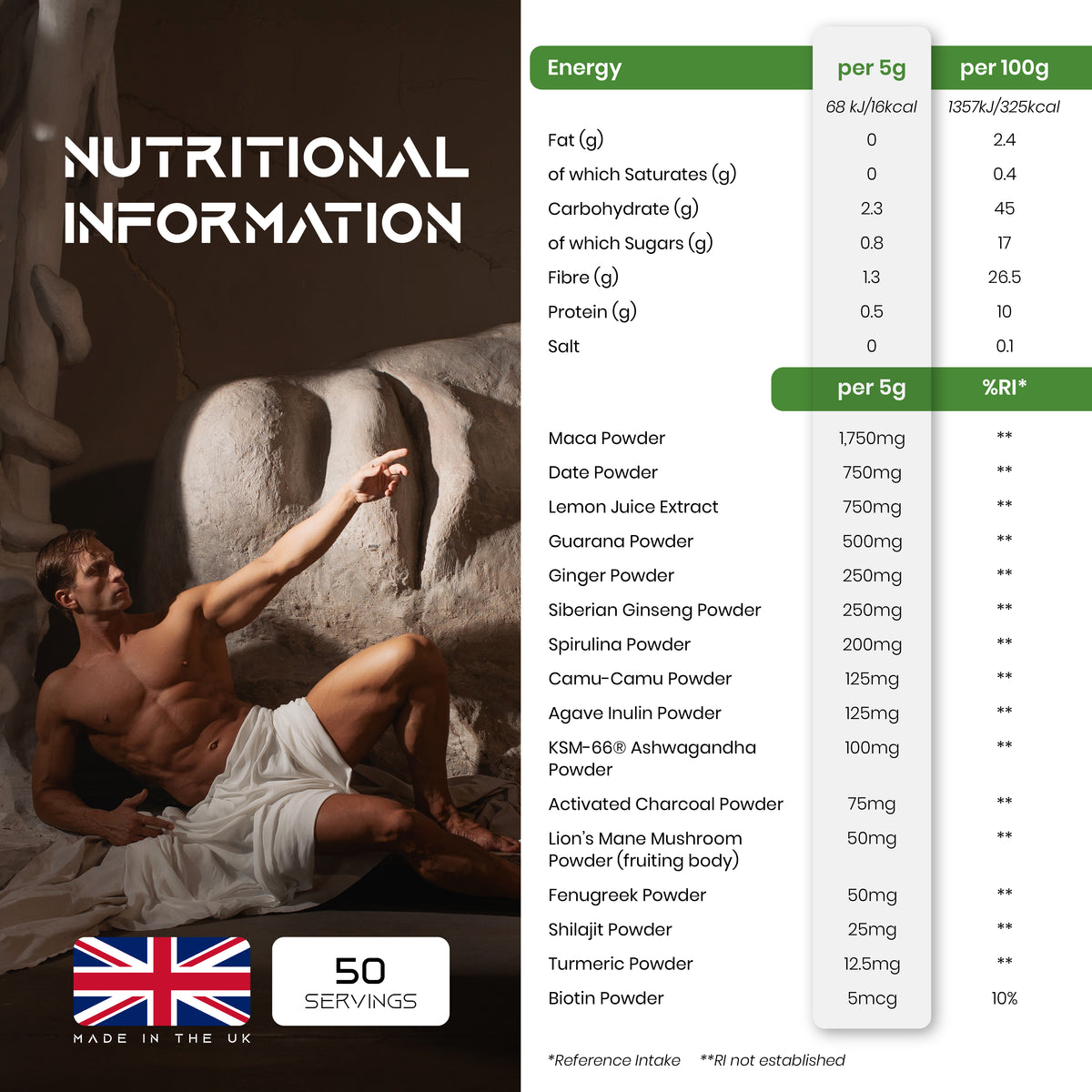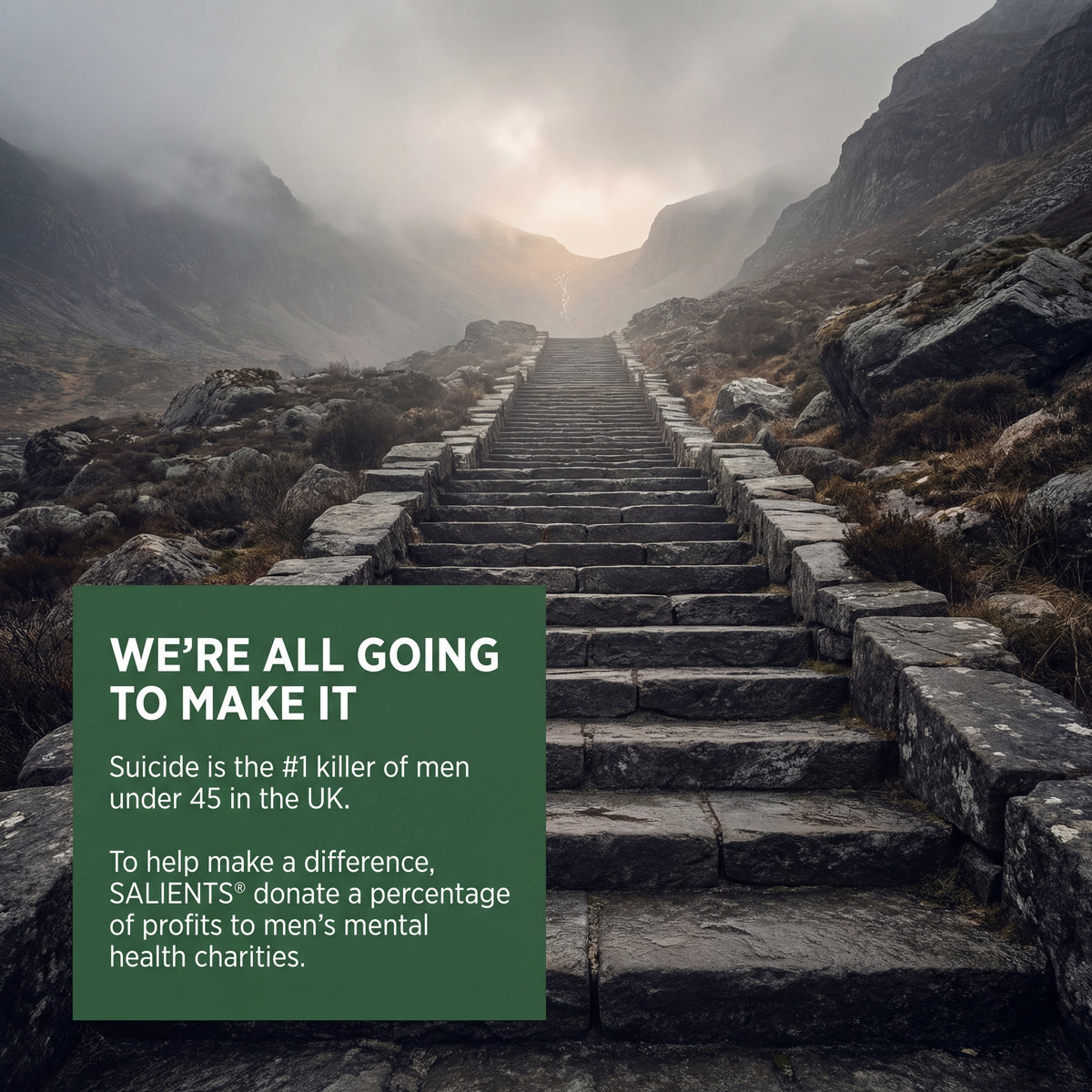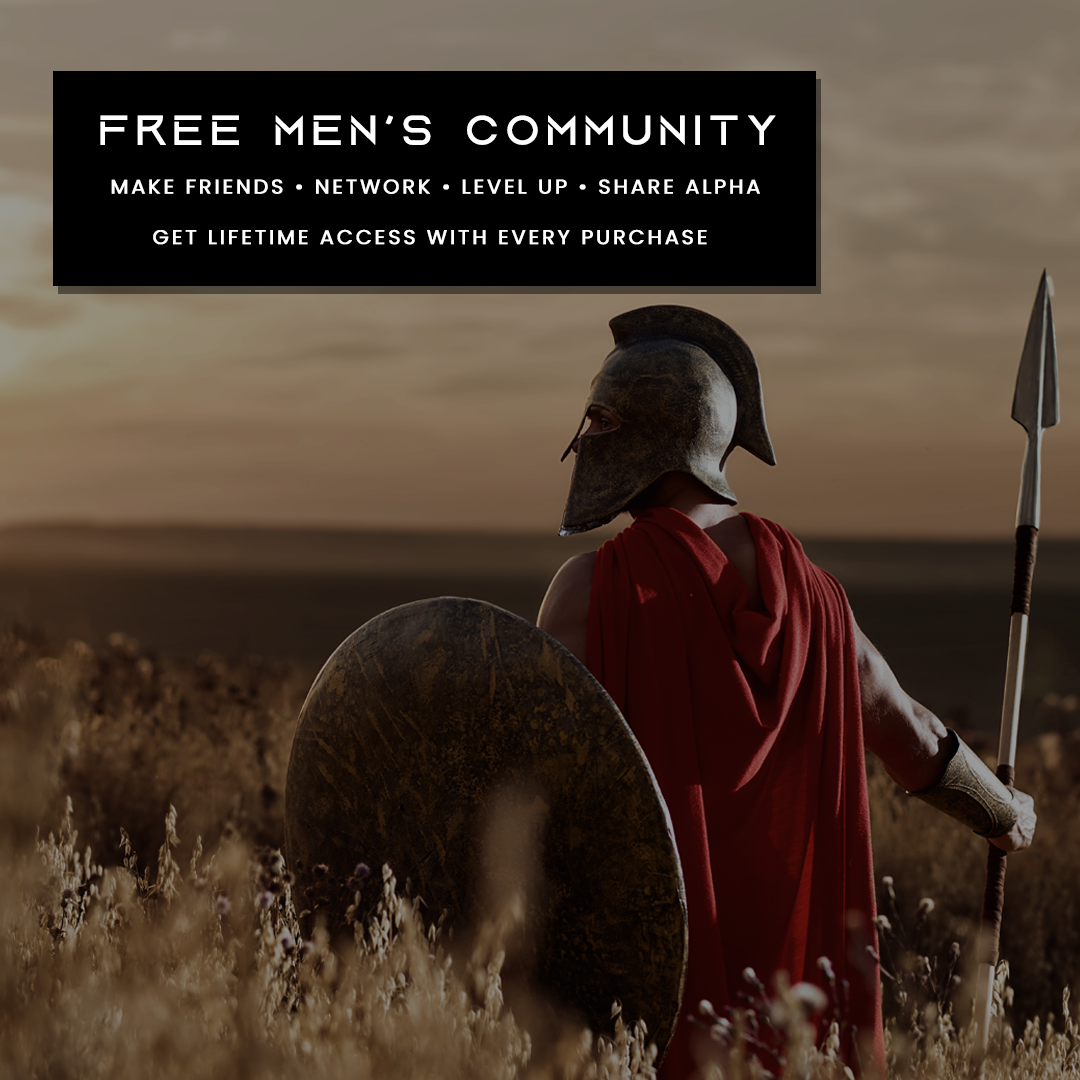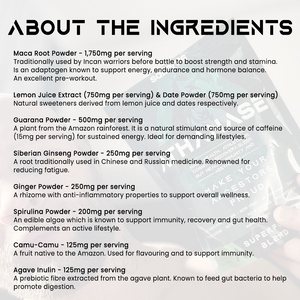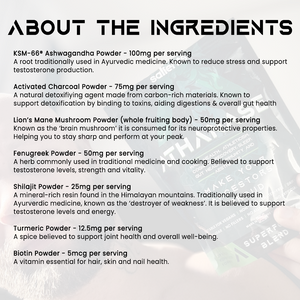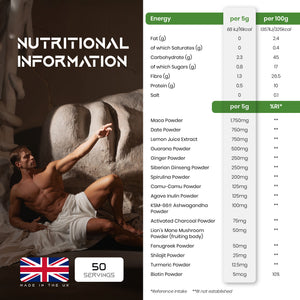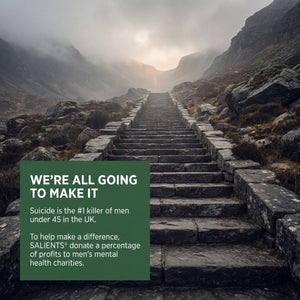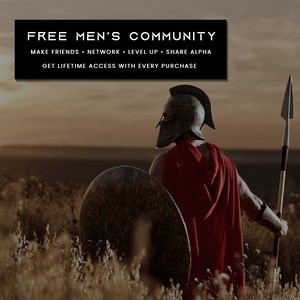Your Cart is Empty
MAKE YOUR ANCESTORS PROUD | FREE SHIPPING ON ALL UK AND US ORDERS
MAKE YOUR ANCESTORS PROUD | FREE SHIPPING ON ALL UK AND US ORDERS
"Toxic Masculinity" – Or Misunderstood Masculinity?
by The Salients February 11, 2025 10 min read

This article explores the deep confusion, resentment, and silence surrounding masculinity today. It aims to bring nuance where there's been oversimplification, compassion where there's been contempt, and structure where there's been collapse.
Our goal is simple: to challenge the current narrative around masculinity, reframe what it means to be a man in modern society, and offer a path forward grounded in honour, strength, and purpose.
Because at its core, the conversation about men isn't just about men. It's about the very foundation of families, communities, and the future of civilisation itself.
Contents
1The Strength in Stoicism
2Testosterone Isn't the Enemy
3The Protector-Provider Archetype
4The Lost Initiation
5Economic Pressure & the Unfathered Psyche
6Digital Humiliation
7Porn & the Lost Meaning of Intimacy
8Father Hunger & Digital Father Figures
9Why Culture Fears the Warrior
10Strong Men Make Safe Women
11Who Benefits from Weak Men?
12The Rebirth of Masculinity
Introduction: What Are We Really Saying?
The phrase "toxic masculinity" is thrown around often—sometimes with reason, but more often as a blunt tool used to shame or suppress certain male behaviours. Assertiveness becomes aggression. Stoicism becomes emotional repression. Leadership becomes domination.
But masculinity is not the enemy. It's time we ask: are we rejecting the shadow of masculinity—or masculinity itself? Because if we continue erasing its virtues, we risk creating generations of men who are disconnected from their nature, aimless, and ashamed of their instincts.
"Men are the builders of civilisations, but they are also the destroyers."
— THE SALIENTS®
We are living through a time of institutional decay and narrative collapse. When the centre cannot hold, we need strong individuals—particularly strong men—capable of bearing weight, creating order, and restoring integrity.
If we continue pretending masculinity has no place, we risk losing the very qualities we turn to in times of crisis.
"Toxic Masculinity"
A cultural narrative that blames masculine traits—such as dominance, stoicism, and competitiveness—for harmful behaviour. But the phrase often fails to distinguish between masculinity itself and the misuse of it.
"Red Pill" Ideology
Originally a metaphor from The Matrix, co-opted by online spaces to refer to "awakening" about gender dynamics. While some offer genuine critique, others devolve into resentment, nihilism, and dehumanisation.

1
Psychological Foundations: The Strength in Stoicism
"A man who masters himself is free from the chains of chaos."
— THE SALIENTS®
Men are often criticised for being emotionally unavailable or closed off. But stoicism—when understood correctly—is not about bottling emotions; it's about emotional regulation. Psychology recognises that people cope differently. Men, on average, have a natural preference to internalise stress and solve problems through action rather than verbal expression.
Consider a firefighter running into a burning building. Do we want him breaking down emotionally, or do we want him focused and composed under pressure? This form of psychological resistance to emotionality is a hallmark of traditional masculine energy—and it's invaluable in crisis.
Key insight: Many men don't process emotions by talking—they process by solving. They need space to act, structure to improve, and challenge to grow. Telling them to simply "talk about it" without giving them a mission can feel hollow or even emasculating.
That said, we must also be cautious not to idealise emotional suppression in the name of strength without valid higher purpose. Repressing feelings under the guise of stoicism, or confusing entitlement and control with masculinity, is one factor that leads to emotional harm.
The ultimate goal is integration: to develop men who can hold their ground in fire and open their hearts in stillness. That is what makes an elite man.

2
Biological Realities: Testosterone Isn't the Enemy
"Testosterone is neither angel nor demon—only fire. And fire must be trained, not tamed."
— THE SALIENTS®
Average testosterone levels in men have been steadily declining over the past several decades. This is a societal issue camouflaged as a health issue. Testosterone is not merely a hormone tied to aggression or libido; it fuels our drive, risk-taking, competitiveness, and innovation.
What happens to a society when the very fuel that powers ambition and courage is slowly extinguished?
Low testosterone impacts confidence, motivation, mood, and even a man's willingness to challenge himself. A generation of men lacking in this core biological fire may become passive, indecisive, or unable to bear long-term responsibility.
These traits, when left unguided, can become destructive—but when channelled with purpose, they lead to innovation, leadership, and strength. The same drive that makes a young man want to win at sports can be redirected into business, martial arts, or personal mastery.
It's not testosterone that's the issue—it's the absence of guidance and initiation. In tribal societies, older men would mentor younger men, helping them master their impulses. Today, with fatherlessness at an all-time high and mentorship lacking, many young men are left to figure it out alone.
We need to stop requiring masculine traits to be filtered through femininity before they're accepted. Aggression, for instance, is only praised when used in defence of others—but never as a raw, motivating energy. Yet that same aggression, when given structure, has built businesses, protected nations, and defended families.

3
Evolutionary Context: The Protector-Provider Archetype
"Men were not designed for comfort—they were designed for challenge."
— THE SALIENTS®
Evolution shaped men for hunting, defending, and enduring. The traits we associate with masculinity—strength, competitiveness, focus, risk-taking—were vital for group survival. These traits are still relevant.
Look at natural disasters or acts of terror—more often than not, it's men who run toward danger. First responders. Military personnel. Bodyguards. It is deeply ingrained within a man's DNA to fight for a cause. This is an archetype our society still depends on, even if it no longer honours these men.
Suppressing this energy doesn't erase it—it redirects it. A man who is not a protector may become a predator, not because he is inherently violent, but because his energy was never taught to serve.
And yet, we often struggle to praise these roles unless they are softened by emotional vulnerability or care work. Why must a man be both a warrior and a nurturer to be validated? Isn't the warrior valuable in his own right?

4
Social Influence: The Lost Initiation
"When rites disappear, rebellion takes their place."
— THE SALIENTS®
Across cultures, boys became men through rites of passage—ceremonies that tested their endurance, courage, and integrity. Today, most young men move into adulthood with no direction. No initiation. No elders.
🎮
Video game addiction
📱
Online influencers as guides
🔪
Gangs as surrogate families
💊
Substance abuse
🎭
Extreme ideologies
🔞
Pornography
This isn't a masculinity problem. It's a mentorship problem. We need spaces—both literal and digital—where men can be challenged, tested, and mentored into maturity. Not just told what not to do, but shown and led by example of what to become.
The modern paradox: Men and women today are often pushed through the same social rites of passage: get an education and enter the workforce. But while this pathway might develop skills or status, it rarely addresses the unique inner journey of manhood—the transformation from boy to protector, from ego to responsibility.

5
A Broken System: Economic Pressure and the Unfathered Psyche
"In a world with no safety net, speculation & lottery becomes survival."
— THE SALIENTS®
Today's young men are not just economically strained—they're being raised into a dystopian version of adulthood. With rising living costs, unaffordable housing, and a lack of upward mobility, many feel they've been handed a broken system.
In the absence of meaningful paths to stability, some are turning to high-risk speculation in stocks, crypto—not out of greed, but out of necessity. They aren't trying to beat the system—they're trying to escape it.
This speculative mindset isn't ambition. It's desperation. When traditional milestones—home ownership, family leadership, financial independence—seem out of reach, young men chase riskier alternatives. But it's not just money they're after—it's dignity and respect.
There's also a psychoanalytic lens worth exploring. In Freudian psychology, the absence of the "father figure" represents not just a missing parent—but the missing force of structure, boundaries, and initiation into adult responsibility. Without that force, the ego doesn't integrate healthily—it fractures.
What we see today in the 'manosphere', red/black pill rage, or nihilism isn't random—it's the result of unfathered psyches grasping for identity in a fatherless culture.

6
Digital Humiliation: Where Masculinity is Mocked
"A man without purpose will look for identity in chaos."
— THE SALIENTS®
Beyond financial stress, another hidden force driving disillusionment is digital humiliation—where social media, meme culture, and dating apps create a hypercompetitive environment that leaves many men feeling invisible and unwanted.
The rise of rage-bait content, especially aimed at men, is not accidental. Viral posts and memes, such as "6 feet tall, 6 figures, 6 inches" set impossible standards and mock the average man. Imagine the harm this does to young boys who now feel the pressure to accumulate a lifetime's worth of experience and resources before they turn 18.
Top 10% Studies show a small percentage of men receive the majority of likes and attention on dating apps, while the rest are largely ignored.
This digital rejection feeds the belief that masculinity is worthless unless it meets extreme status, aesthetic or financial benchmarks. The algorithm becomes the judge, and most men are silently told: "You don't matter."
What's dangerous is not just the rejection—but the lack of tools to process it. Without mentorship, values, or spiritual grounding, humiliation becomes rage. And rage, when left alone, seeks revenge or retreat—fueling the very echo chambers society then blames.
A 2022 study by the Pew Research Center found that men who engage with online men's rights and manosphere forums are disproportionately younger, less educated, and more likely to be underemployed. Many come from working-class or economically strained backgrounds.

7
Sexual Disillusionment: Porn, Promiscuity, and the Lost Meaning of Intimacy
"A culture that commodifies intimacy forgets how to honour it."
— THE SALIENTS®
Social media hasn't just mocked masculinity—it has commodified intimacy. Platforms like OnlyFans have shifted the power dynamic around sexuality. For young men who struggle with real-world confidence or connection, this commodification can breed confusion, resentment, or obsession.
And at the core of this digital distortion is pornography. Most boys today are exposed to it during their most formative years—before their first kiss, date, or relationship. What was once an innocent exploration of sexuality is now hijacked by a hyper-stimulating, digitally weaponised version of intimacy.
Pornography reprograms the masculine brain. It numbs reward pathways, fuels unrealistic expectations, and over time subtly erodes a man's ability to bond whilst still allowing him to crave connection—a form of torture for young men.
At its worst, it teaches boys that domination is intimacy, and that affection can only be earned through performance, power, transactions or even worse—by entitlement and force.

8
Father Hunger and the Digital Father Figures
"If the father is absent, the algorithm will raise the boy."
— THE SALIENTS®
Behind many of the crises facing young men is one silent epidemic: fatherlessness. Boys who grow up without a consistent, strong male role model often struggle to develop identity, emotional regulation, and a healthy sense of masculinity.
70%+ of youth in US state-operated institutions come from fatherless homes
↑ Higher rates of dropout, substance abuse, violent crime, and suicide
This is not the fault of mothers—it's a recognition of what is missing: structured masculine energy passed from elder to youth.
With the traditional family unit breaking down and mentorship structures dissolving, young men are increasingly turning to the internet for guidance. Influencers like Andrew Tate, Jordan Peterson, or other red pill commentators become digital father figures—not because they're perfect, but because they fill a vacuum.
Until society offers real, local, physical alternatives, the father hunger will persist—and continue to shape the future of masculinity.

9
The Soft Male Ideal: Why Culture Fears the Warrior
"The world pretends to despise the warrior—until it needs him."
— THE SALIENTS®
In many progressive narratives, the "ideal man" has quietly shifted. He is cooperative, emotionally expressive, non-confrontational, and above all, soft. While there's value in emotional intelligence, the problem arises when masculine virtues like courage, dominance, and ferocity are not just discouraged—but demonised.
We're told men should be more sensitive, but rarely are they told to be more resilient. We're encouraged to teach boys to be kind, but seldom to be dangerous with discipline. This cultural imbalance breeds confusion and suppression of instincts.
The warrior is disrespected in times of peace, but prayed for in times of chaos.
We must stop punishing men for embodying the very traits that have stabilised the world during crisis.

10
Strong Men Make Safe Women
"Masculinity, when noble, is a fortress—not a prison."
— THE SALIENTS®
Feminism has, in many ways, achieved necessary progress. But as we advance, we must be cautious not to frame masculinity as the enemy of womanhood. In truth, refined masculinity is one of the greatest gifts to women.
Strong men create safety—not just physically, but emotionally, socially, and spiritually. A man rooted in values protects his partner, leads his family, and creates stable environments for children to flourish.
Conversely, weak men—unmentored, unanchored, and resentful—become emotionally volatile, violent, manipulative, or passive. This is why masculinity must be cultivated, not erased.
True partnership isn't found in sameness. It's found in mutual respect between strength and softness, between masculine and feminine.

11
Cultural War: Who Benefits from Weak Men?
"The erosion of masculinity is not progress—it is preparation for control."
— THE SALIENTS®
There is a growing narrative that equates traditional masculinity with oppression. Yet history shows that strong, honourable men are the ones who sacrifice themselves for their families, communities, and causes greater than themselves.
So who benefits when men are passive, confused, and ashamed of their own nature? The answer is: no one—except those who want power without resistance.
Weak men don't stand up to tyranny. They don't challenge bad ideas. They don't build families or defend the vulnerable. When you silence masculine virtue, you don't get peace. You get chaos and a low-trust society.
Without alternative models of strength, disenfranchised young men will seek it wherever they can find it. If we don't offer those things in healthier, honourable forms, the vacuum will be filled by the extreme.

12
Conclusion: The Rebirth of Masculinity
Masculinity isn't toxic. Unrefined masculinity is.
The solution isn't less masculinity—it's better masculinity.
Men need purpose, physical challenge, brotherhood, and discipline. They need to feel that their natural instincts have a place in this world—that they are not monsters, but protectors. That their strength can serve rather than destroy. That there is something good, sacred, and enduring that is worthy of their sacrifice.
We need to leave the "narrative trap" and speak truths others are afraid to say. Masculinity must be part of the great reintegration—not cast into exile.
Because if men are not given something to build and a worthy cause, they will eventually destroy. Not because they are inherently violent, but because unchanneled strength becomes chaos.
Masculinity is not a trend to be discarded. It is a pillar of our civilisation. It must be remembered again and reborn into modern society.
Let us raise men who are grounded, not lost. Dangerous, but disciplined. Strong, but safe. And above all—honourable.
To Every Man Reading This:
This world needs your strength. Not the kind that dominates, but the kind that builds. The kind that protects, that leads, that stands tall in the face of strange, turbulent times.
You are not a problem to be fixed. You are a foundation to be rebuilt.
Sharpen your body. Build your mind. Lead your home. Mentor those behind you. Be the man you needed when you were younger.
You are the builder of civilisation—and the keeper of its future.
Make Your Ancestors Proud. ⚔️
The World's First Superfood Blend For Men
ATHANASE
2243 reviews
£28.00
MAKE YOUR ANCESTORS PROUD® with ATHANASE®. A blend of herbs specially formulated for men, to help conquer 7 areas:
| |
MALE HEALTH |
| |
ATHLETICISM |
| |
MOOD & COGNITION |
| |
RECOVERY & SLEEP |
| |
GUT HEALTH |
| |
IMMUNITY |
| |
AESTHETICS |
As seen in Men's Health Magazine and Certified by Informed Sport.
I
Ian Bryer Great Product
Been using this product about 2 weeks and already feeling the benefits
R
Richard Rough taste but mixed with electrolytes or juice its fine. Amazing product for increasing strength and recovery when hitting the gym daily🤘🏼
J
Jordan Brennan Athanase
Fantastic product. Feel the effects pretty quickly. Unexpected improvement in stamina.
I
I Y Athanese
Really good product, stopped using for a week to see if there was any difference and definetly noticed the difference it had been making. I felt less tired throughout the end of the day when taking it.
J
James Green Best on the market
Tastes horrible but with electrolytes and creatine then bobs your uncle
Select a purchase option to pre order this product
Countdown header
Countdown message
Countdown message
DAYS
:
HRS
:
MINS
:
SECS



